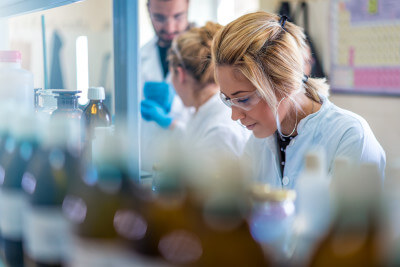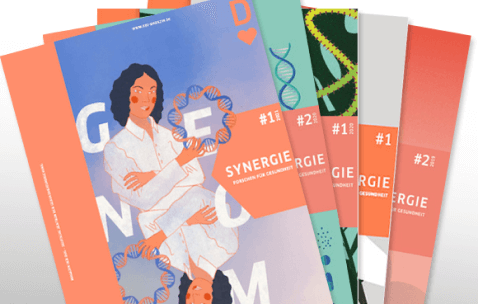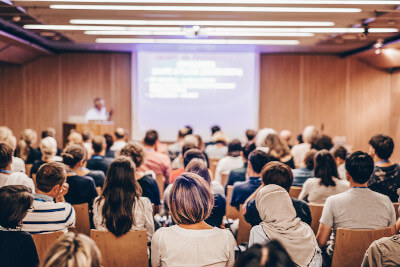
Go back to the overview page
DZG Talk
How data can save lives
A conversation between Prof. Dr. Martin Hrabě de Angelis, Director of the German Center for Diabetes Research, and Rudolf Hauke, Chairman of the Cancer Research Patient Advisory Board of the German Cancer Research Center (DKFZ) and the German Consortium for Translational Cancer Research (DKTK).
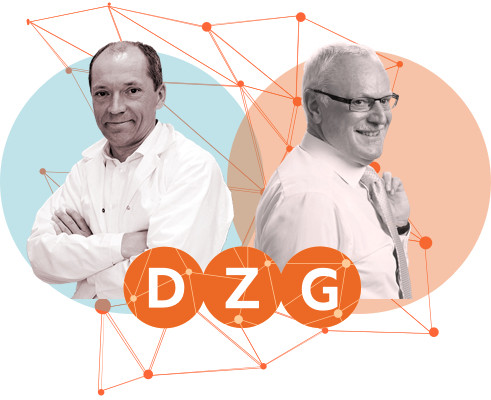
Professor Hrabě de Angelis, the digitalization of health data opens up entirely new possibilities for research. To ensure that this growing treasure trove of data is used to benefit all, patients' perspectives and values must be considered when donating their health data. Why is data so valuable for research and what is the added value?
Prof. Dr. Martin Hrabě de Angelis
Research results are fundamentally based on data. If you are investigating a hypothesis, such as the assumption that dementia and diabetes are related, you need data based on real findings and knowledge, i.e. evidence-based, to be able to come to a conclusion.
For example, in recent years it has been discovered that there are distinct subtypes of type 2 diabetes that require different treatment. This knowledge is based on large studies involving many thousands of people whose data have been analyzed. The ultimate goal is to use these large amounts of data to generate personalized statements that are tailored to the individual patient.
For example, in recent years it has been discovered that there are distinct subtypes of type 2 diabetes that require different treatment. This knowledge is based on large studies involving many thousands of people whose data have been analyzed. The ultimate goal is to use these large amounts of data to generate personalized statements that are tailored to the individual patient.
Mr. Hauke, as a patient representative in cancer research, how do you evaluate the use of patient data in research?
Rudolf Hauke
Let me start with a quote from Federal Minister of Education and Research Stark-Watzinger, who said: "The best chance in the fight against cancer is excellent research." We all agree on that. But without sufficient data, cancer research is flying blind. Data is essential for both research and care, and it saves lives.
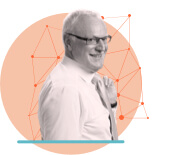
"Without sufficient data, cancer research is flying blind."
But I think there are still obstacles to overcome. Prof. Hrabě de Angelis mentioned the development of personalized medicine and the great opportunities that it offers to us, the patients. However, due to the current legal situation and current data protection practices, the use of data in Germany is currently limited.
Prof. Hrabě de Angelis, you just mentioned that some of the health data comes from large studies. What are other sources of data?
Prof. Dr. Martin Hrabě de Angelis
The data comes from different sources. First of all, from clinical trials that address a specific question, such as how well a particular drug works in a particular group of patients. It also comes from studies that investigate how common diseases are in a population, how they are distributed, and what risk and protective factors exist. Examples of such population-based data collections include the NAKO health study in Germany, a long-term study that collects data from 200,000 citizens over 20 to 30 years, and the UK Biobank in the United Kingdom, with whom we work closely.
A completely different type of data is direct patient data, such as from health insurance companies. The data collected by health insurance companies is based on billing systems, not on research questions. We must take that into account when we work with this data so that it doesn't lead us down the wrong path.
We must also distinguish between clinical and preclinical data. Clinical data deal with humans, while preclinical data are often based on cell culture systems, artificial organ models, or animal models.
A completely different type of data is direct patient data, such as from health insurance companies. The data collected by health insurance companies is based on billing systems, not on research questions. We must take that into account when we work with this data so that it doesn't lead us down the wrong path.
We must also distinguish between clinical and preclinical data. Clinical data deal with humans, while preclinical data are often based on cell culture systems, artificial organ models, or animal models.
"There are pilot projects that are working well."
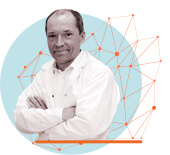
The next step is to link all this data in a meaningful way. There are concrete plans for this, and the first pilot projects are working well. The technology is available. However, access to the data is still difficult for several reasons. In particular, it is hindered by data protection and the German interpretation of the General Data Protection Regulation. We are a long way from what we could be doing to advance research and benefit patients.
How is patient data protected?
Prof. Dr. Martin Hrabě de Angelis
Germany is very careful with data. There are data protection officers who ensure that the General Data Protection Regulation is adhered to. We only work with pseudonymized data. A trust agency replaces the patient's personal data with a pseudonym so that it is not possible for researchers to identify a person based on the information provided.

"A trust agency replaces the personal data with a pseudonym."
Mr. Hauke, what is the opinion of the DKFZ Patient Advisory Board on the use of data and data protection?
Rudolf Hauke
"Data protectionists work for healthy people - and sick people want their data to be analyzed.” That's true to a certain extent. As the DKFZ Patient Advisory Board, we have addressed the issues of data use and data protection on several occasions. It goes without saying that the protection of personal data must be guaranteed, and that data must be secure to prevent uncontrolled access. There is a consensus on this, both for healthy people and for patients. And the appropriate technical and organizational measures are already in place. However, far too little attention is paid to the fact that the use of data is lifesaving.
I would like to add something on a personal and emotional note: I was diagnosed with cancer for the first time in 2001. Since then, I have undergone just about every type of therapy, including stem cell therapy and CAR T-cell therapy, and have been treated at four university hospitals. When I'm on a drip, I don't care if my data is protected to the last bit. I just want it to be available for research.
I would like to add something on a personal and emotional note: I was diagnosed with cancer for the first time in 2001. Since then, I have undergone just about every type of therapy, including stem cell therapy and CAR T-cell therapy, and have been treated at four university hospitals. When I'm on a drip, I don't care if my data is protected to the last bit. I just want it to be available for research.

"An opt-out solution would lead to better and faster results in research."
In Germany, data is only donated with the explicit consent of the individual. This leads to long consent cascades. An opt-out solution for health data - i.e. the basic permission to use the data if no active objection is made - would lead to better and faster results in research. The German Ministry of Health is working on this, at least as far as health data is concerned. There are also plans for a European Health Data Space, the rules for which are already being prepared by the Federal Ministry of Health. We as patient representatives must support this as much as possible.
Overall, I can say that we patients are largely positive about the use of data.
Overall, I can say that we patients are largely positive about the use of data.
Prof. Dr. Martin Hrabě de Angelis
That's an important point you raise, Mr. Hauke. The planned German Health Data Usage Act (Gesundheitsdatennutzungsgesetz, GDNG) and the European Health Data Space are an opportunity to raise data use in Germany to an international standard. It must be said, however, that Germany is in the process of organizing itself. There are already activities in which we are organizing ourselves across federal states and metropolitan regions in order to contribute data and make it usable. But there is still a great need for action. This is not an easy process because we live in a federal and not a centralized country.

"Germany must try to be at the forefront and shape the future."
According to the FAIR principles, data should be "Findable, Accessible, Interoperable and Re-usable” and, very importantly, reproducible. Only reproducible data, i.e. data that can be "produced" again, is of such good quality that we can use it as a basis for prevention or treatment. All these important aspects are now being vigorously promoted by the European movement. Germany must try not to lag behind, but to be at the forefront and shape the future. After all, a good database, together with artificial intelligence, will open up many new possibilities for diagnosis and therapy.
Rudolf Hauke
I can only support the initiatives that make health data usable and there is already movement in this direction. I would like to give an example of this: The National Center for Tumor Diseases, NCT for short, is being expanded from its current two sites to six. As patient representatives, we have successfully worked on this concept for three years. This structure will make data available that will facilitate research. Unlike in the USA, many university hospitals in Germany currently have a very local focus. We want to change this through the NCT and strengthen cooperation.
Prof. Dr. Martin Hrabě de Angelis
Let me give you other examples of where we are already benefiting from the use of data and artificial intelligence: Retinopathies are a secondary disease in severe cases of diabetes. This disease of the retina can be diagnosed much better with the help of AI-based methods. We have also developed AI-based systems that can make clearer statements based on one ECG than people who have seen thousands of ECGs. These developments are happening all over the world. It's a huge opportunity, and we're still at the very beginning.
"It's a huge opportunity and we're still at the very beginning."

Collecting data in our German healthcare system is extremely costly. Like the Scandinavian countries, we should consider our health data as a "treasure of the community of solidarity". From this point of view, we should derive the responsibility that both patients and healthy people donate their data. After all, we also need data from healthy people to make comparisons with those who are sick. I think that's the difficulty: how do we convince those who may not have serious, life-threatening health problems at the moment to share their data to help other people?
Perhaps a number will help: 50 percent of all people will develop cancer or diabetes in their lifetime. So all those people who think, "I'm healthy and I don't want to donate my data," will probably benefit from data donation at some point, right?
Prof. Dr. Martin Hrabě de Angelis
That's exactly why we want to move towards opt-out, and that's the right way to go. Data sovereignty is still in the hands of the individual. Anyone who does not want their data to be made available can choose this opt-out option, i.e. they can reject the use of their data. This process would make a lot of things easier and would allow us, for example, to participate in international studies, which currently often happen without us due to our time-consuming approval processes.
When we talk about the treasure of the community of solidarity, in addition to data protection, is there also a problem in Germany with how data is collected and stored so that it is truly compatible and accessible?
Prof. Dr. Martin Hrabě de Angelis
True, but I can give you a positive example: At the German Centers for Health Research, researchers discuss the format in which data will be collected already at the beginning of a study. We have also agreed on a minimum set of data to be collected in all studies, whether in cancer research, lung research, infection research, diabetes, Alzheimer's and dementia, or cardiovascular disease. We follow international standards, the FAIR criteria that I mentioned earlier, to ensure that the data can be used later. As I said, the technical solutions are available. The problem is the implementation, the willingness of everybody to agree: We will use the international standard, and that will make our data usable and compatible.

"In the DZG, we follow international standards for data collection."
Rudolf Hauke
I think there still needs to be a cultural change throughout Germany. One more point, because I was a board member of a health insurance company for 16 years: We should not underestimate the wealth of data stored by the individual health insurance companies in our community of solidarity. Not only billing data but also treatment data. But even there, not everything can be used and brought together.
There is another important point that I would like to mention, and it is not only related to data. For us patients, the benefit of participating in a trial where data is being collected and studied is that we have early access to innovative treatments and procedures that are not yet approved and therefore not widely used. These therapies can potentially help us patients tremendously.
There is another important point that I would like to mention, and it is not only related to data. For us patients, the benefit of participating in a trial where data is being collected and studied is that we have early access to innovative treatments and procedures that are not yet approved and therefore not widely used. These therapies can potentially help us patients tremendously.
Prof. Dr. Martin Hrabě de Angelis
I am convinced that in the next 10 to 20 years, prevention and treatment in healthcare will improve significantly. The digitalization of data, and computer-based systems, i.e. machine learning and artificial intelligence, will make a substantial contribution to this. I can imagine that in 20 years, people will look back on 2023 with a smile on their faces and say, "We did our best, but therapies without side effects were simply not possible without our tools back then. That's pie in the sky, but it's the vision that keeps me researching, talking to people, giving interviews, and never getting tired of talking about the potential of health data.
And on your behalf, Mr. Hauke, it is very valuable for us to have patient representatives with us. They add another perspective that we lack in our day-to-day research work.
And on your behalf, Mr. Hauke, it is very valuable for us to have patient representatives with us. They add another perspective that we lack in our day-to-day research work.
Professor Hrabě de Angelis, Mr. Hauke, thank you for this interview.
Helga Rohra, Co-Chair of the DZNE Patient Advisory Board
Learn more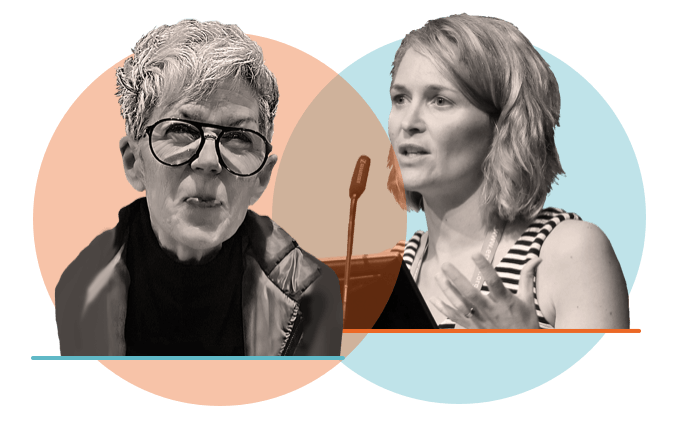

Back to the overview page
Clinical Trials
Clinical trials are essential in medical research to prevent, detect, and treat diseases more effectively. Patients who participate in a clinical trial make a valuable contribution to health research, have access to new treatments, and receive intensive care.
Patient Participation
Health research is undergoing a shift in thinking: There is a growing recognition that everyone benefits when patients are actively involved in the research process. The DZG offers various opportunities for this.
